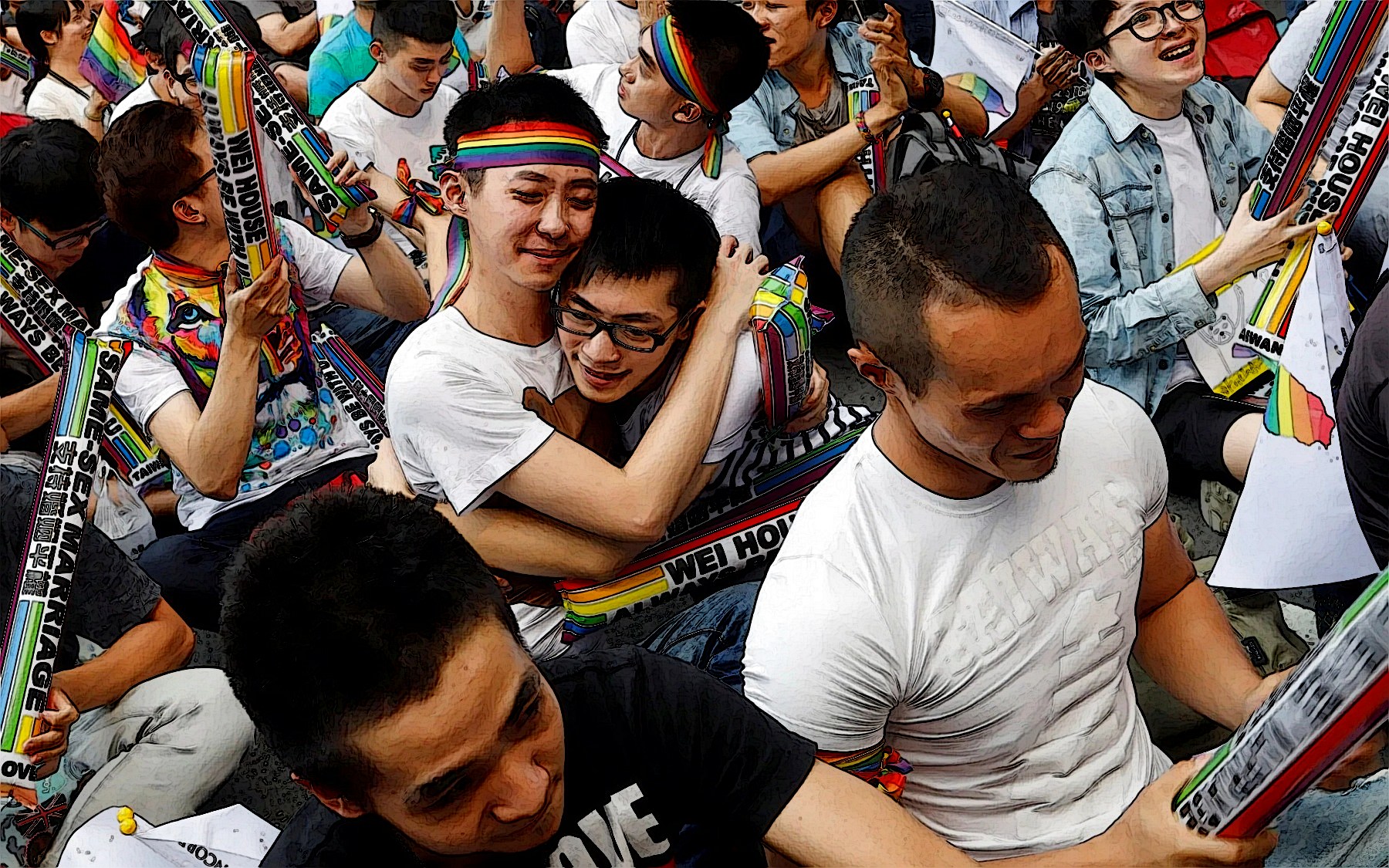
Asia Passes Gay Marriage in Taiwan, First Country to Approve Marriage Equality
Taiwan is the first country to approve gay marriage via its legislative government providing many of the same tax benefits and legal status as heterosexual couples for same sex marriages.
Two years after the island’s Constitutional Court ruled that the existing law — which said marriage was between a man and a woman — was unconstitutional, the legislature brought the matter to a vote. Taiwan’s democrratic poltiical system led to widespread debate and participation on both the pro and anti equality movements.
Leslie Li, a Taiwanese LGBT rights promoter, said that the LGBT movement has gained more traction since the 2000s, after some unfortunate incidents.
In 2000, the tragic death of 14-year-old Ye Yong Zhi, who has been bullied due to his sexuality, created national outcrying and put a spotlight on LGBT issues.
Yet, it still took close to two decades of sustained activism to achieve a change in public opinion and government’s stance.
Corporates also played a role in promoting support for same-sex marriage. As reported by Thomson Reuters Foundation, a total of 15 companies including Google, O-Bank Co and EY, joined forces to laud the benefits of same-sex marriage, such as fuelling innovation and fostering collaboration.
Whereas the enactment of Taiwan’s same-sex marriage law can be regarded as a significant (if only partial) victory for the gay community and allies in Taiwan, and a key precedent for the rest of Asia, another important factor in the passage of this legislation is Taiwan’s ongoing effort to gain international status on the global stage and to distinguish its identity against that of China, which is less progressive on gay rights.
Tens of thousands of people braved pouring rain Friday to demonstrate in favor of same-sex marriage outside the parliament, as lawmakers began voting on three draft bills, one tabled by the island’s Cabinet — which would ultimately prove successful — and two watered-down rival bills tabled by conservative groups.
The successful Cabinet bill was the only one to use the word “marriage.” It was backed by LGBTQ groups, despite the fact it could see same-sex couples denied rights enjoyed by hetrosexual couples, such as adoption and cross-national marriage.
Xiaogang Wei, who heads the Beijing Gender Health Education Institute, called the bill’s passing a historic moment, not only for Asia but for the global LGBTQ rights movement.
“It will have a very positive impact on China’s LGBT community, offering us a lot of hope,” he told CNN.
“The Chinese government has pointed to cultural tradition as a reason for same-sex marriage being unsuitable in China. But the decision in Taiwan, which shares a cultural tradition with us, proves that Chinese culture can be open, diverse and progressive.”
After the vote, Taiwan’s President Tsai Ing-wen tweeted: “We took a big step towards true equality, and made Taiwan a better country.”
This article adopts a “political process” explanation by looking at changes in the political context and how they facilitate the movement for marriage equality. I maintain that electoral system reform in 2008, the eruption of the Sunflower Movement in 2014, and the electoral victory of the Democratic Progressive Party in 2016, stimulated Taiwan’s LGBT mobilization, allowing it to eventually overcome opposition from the church-based countermovement.